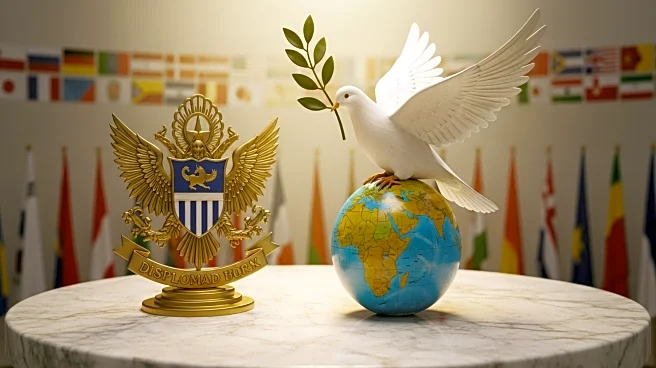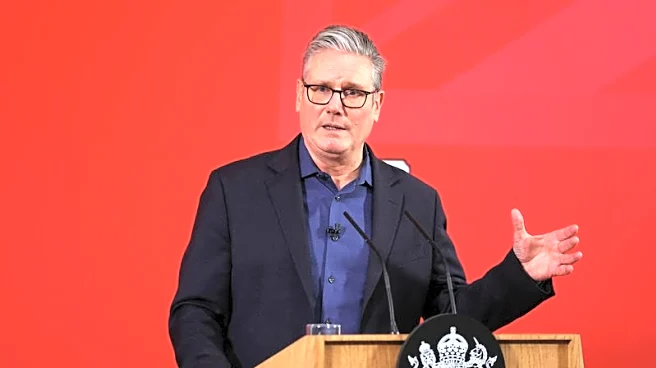What's Happening?
Ukrainian President Volodymyr Zelensky announced that Ukraine would nominate President Trump for the Nobel Peace Prize if he successfully halts Russia's military actions in Ukraine. This statement follows Trump's announcement of a ceasefire in the Israel-Gaza conflict. Trump has been vocal about his achievements in ending conflicts and has previously been nominated for the Nobel Peace Prize for his role in the Abraham Accords and other diplomatic efforts. Zelensky emphasized the importance of a ceasefire and peace talks, suggesting that Trump's involvement could lead to significant progress in resolving the Ukraine crisis.
Why It's Important?
The potential nomination of President Trump for the Nobel Peace Prize underscores the impact of his diplomatic efforts on global stability. Successfully brokering peace in Ukraine would be a major achievement, potentially altering the geopolitical landscape and reducing tensions between Russia and Western nations. This development could enhance Trump's legacy as a peacemaker and influence his political standing domestically and internationally. The nomination also highlights Ukraine's strategic interests in securing peace and stability, which are crucial for its sovereignty and economic recovery.
What's Next?
The Nobel Peace Prize winner will be announced soon, with Trump among the speculated candidates. Ukraine's nomination is contingent on Trump's ability to broker a ceasefire and initiate peace talks with Russia. The ongoing conflict in Ukraine remains a critical issue, with potential sanctions and military support from the U.S. influencing Russia's actions. The international community will closely monitor developments, as successful negotiations could lead to broader diplomatic resolutions in other global conflicts.
Beyond the Headlines
The nomination raises questions about the criteria for the Nobel Peace Prize and the role of political leaders in achieving peace. It also highlights the complexities of international diplomacy, where strategic interests and humanitarian concerns often intersect. The ethical considerations of rewarding leaders for peace efforts amidst ongoing conflicts are significant, reflecting broader debates on the effectiveness of diplomatic interventions.










